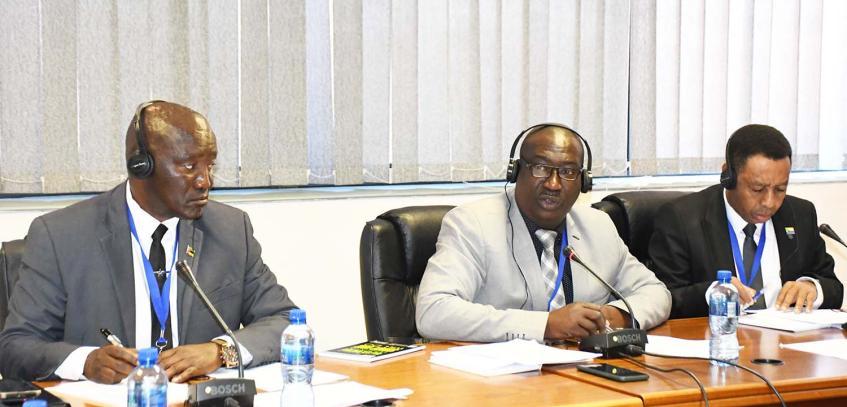The Parliament of the Pan-African Parliament (PAP) Committee on Justice and Human Rights has condemned “unconstitutional change of governments in some parts of Africa” at the ongoing August Sittings of the Permanent Committees of the sixth Parliament of the PAP in Midrand, South Africa.
The sittings are guided by the African Union theme of 2022; ‘Building resilience in nutrition on the African continent: Accelerate the human capital, social and economic development’.
“There is a mushrooming culture of violently dethroning constitutional and democratic elected governments in some countries in our continent which we must strongly fight as Africa,” said Hon. Jean Marie Nibirantije, Chairperson of Committee on Justice and Human Rights.
“I am challenging all parliamentarians across our committees at PAP to adopt a no-nonsense approach towards an unconstitutional change of governments. If we are to have a better Africa, we need stability across our continent first. Without stability we will never go anywhere, so everything starts with maintaining peace, order, democracy, and constitutionalism. I emphasise a need to respect elected governments at all costs.”
In African Peer Review Mechanism (APRM) Continental Secretariat Presentation to the 6th Parliament of the Pan-African Parliament (PAP), Committee on Justice and Human Rights on the African Governance Report 2023 – Unconstitutional Change of Government in Africa.
In his presentation titled African Governance Report 2023 – Unconstitutional Change of Government in Africa, African Peer Review Mechanism (APRM), Director of Governance and Specialised Reporting, Dr McBride P Nkhalamba also lambasted unconstitutional change of governments in some African countries.
“Removing constitutional elected governments must be considered taboo in our continent. There should be mechanisms put in place to punish anyone who pioneers illegal change of government. We need to see perpetrators of unconstitutional change of government not allowed to participate in elections and being tried before the competent court of the Union,” said Dr Nkhalamba.
“The Assembly should impose sanctions on any Member State that is proved to have instigated or supported unconstitutional changes of government in another state in conformity with article 23 of the Constitutive Act. The Assembly may decide to apply other forms of sanction on perpetrators of unconstitutional changes of government, including punitive economic measures.”
Dr Nkhalamba also emphasised that the State Parties shall not harbour or give sanctuary to perpetrators of unconstitutional changes of government.
“State Parties shall bring to justice the perpetrators of unconstitutional changes of government or take necessary steps to effect their extradition,” he said.
-Ends-








